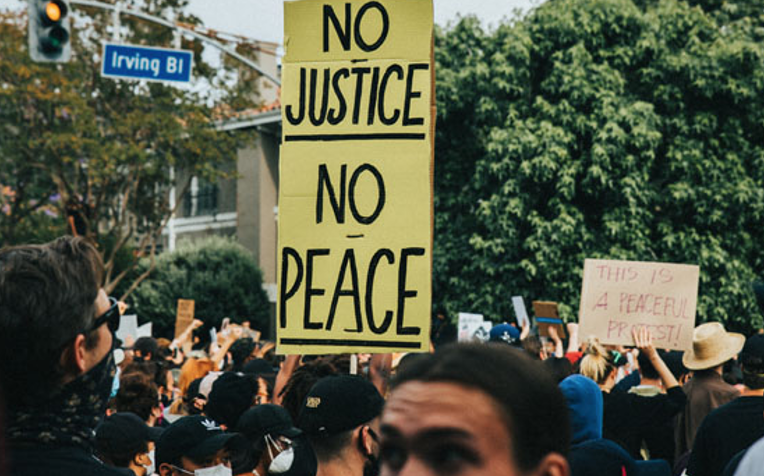CommentsNON-VIOLENT DISSENT-The right to peaceful assembly is enshrined in the Bill of Rights because it is critically important. Indeed, research has shown that peaceful protests and nonviolent tactics are the most effective tools in making social change, even including overthrowing dictators.
To date, 43 states have considered and 26 have enacted some type of anti-protest law. Such laws are often clearly targeted and certain kinds of protest, such as those that were enacted in Kentucky, Louisiana, Mississippi, Missouri, North and South Dakota, Ohio, Oklahoma, Tennessee, Texas, West Virginia and Wisconsin restricting or prohibiting protest around critical infrastructure, including pipelines.
In 2017, Florida considered a law that would eliminate driver liability for hitting protesters, although it was defeated. Florida is now considering another anti-protest bill. Two anti-protest bills (SB 484/HB 1) have been filed and are a priority for Governor Desantis. The House bill passed its first committee of reference this week along party lines.
There are many aspects of the bill that are deeply troublesome. Here, I share some of the provisions that I believe are the most dangerous to democracy.
The bill creates new and higher penalties for the crimes of assault, battery, burglary, theft and stealing if they occur during a riot, which is an undefined term in statute and in the bill. These are already crimes so that provision is unnecessary and has potential to be applied discriminately.
Further, the bill uses broad words such as “injury” and “force” that can be applied even to groups holding a prayer vigil prior to an execution or for abortion opponents offering sidewalk counseling and praying in front of an abortion facility. Even encouraging someone to participation in an activity that was perceived as a riot would be criminalized as a third-degree felony.
The bill would create a new offense of “mob intimidation,” defined as three or more people acting “with a common intent, to compel or induce, or attempt to compel or induce, another person by force, or threat of force, to do any act or to assume or abandon a particular viewpoint.” Damaging memorials would become a third-degree felony, and the language in this section is very similar to a bill from last session intending to protect Confederate monuments. This is unnecessary as it is already a crime to damage property.
In addition, if someone injures or kills someone participating in a “riot,” for example driving a vehicle into the crowd and hitting someone, the fact that the individual was involved in a riot would be considered an acceptable defense if a civil suit was brought against the perpetrator, regardless of whether the victim was ever charged or convicted with rioting.
In sum, the crimes listed in the Florida bills are already crimes. There is no need for this legislation other than to target protesters. As was obvious in the January 6 attack on the capitol, if the “rioters” are white they are far less likely to be harassed and assaulted by police than if they are people of color, as was the case with the brutal behavior by many police during Black Lives Matter protests.
This legislation, if enacted, will simply exacerbate racial inequalities.
As Representative Andrew Learned, D-Brandon, explained:
As it stands, under this bill, the Boston Tea Party would have been illegal. Suffragettes would not have gotten us the 19th Amendment. And Dr. Martin Luther King Jr. would not have been able to march in Selma, bringing us the civil rights movement.
Neither Florida nor any other state should welcome such laws that criminalize free speech and introduce bias against nonviolent dissent or free assembly.
(Laura Finley, Ph.D., teaches in the Barry University Department of Sociology & Criminology and is syndicated by PeaceVoice. This piece was posted on CounterPunch.org.) Prepped for CityWatch by Linda Abrams.

















